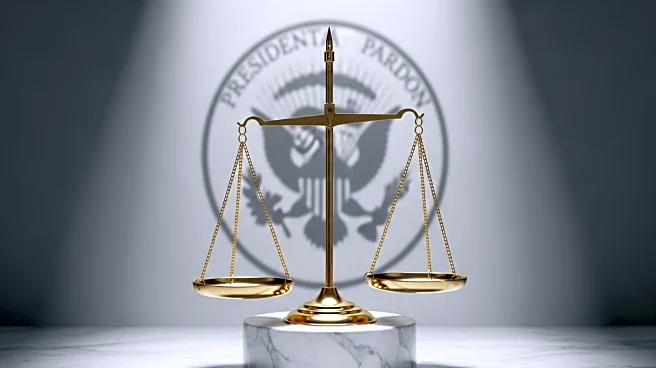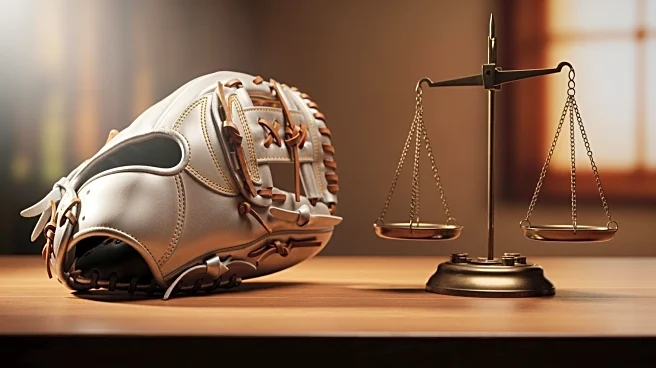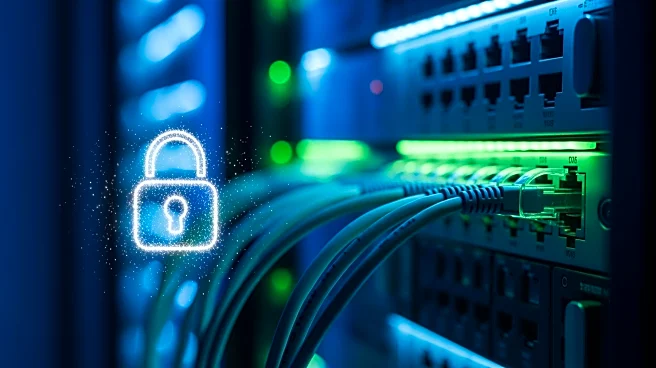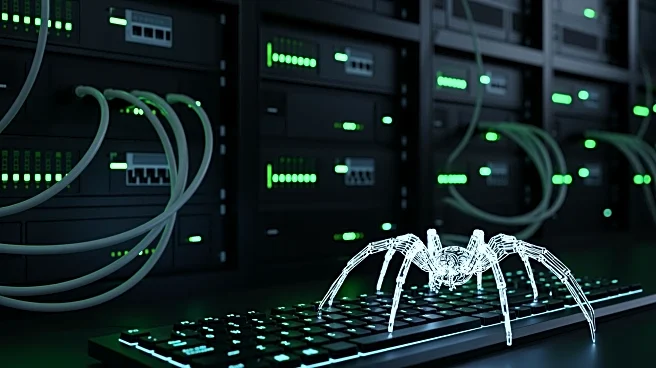What's Happening?
The U.S. Presidential Pardon is a form of executive clemency granted by the President, allowing individuals convicted of federal crimes to be forgiven, restoring certain rights and removing legal penalties. The pardon power is granted by the U.S. Constitution, which vests the President with broad authority to issue pardons, except in cases of impeachment. The pardon process involves the Office of Pardon Attorney (OPA) reviewing applications, conducting background checks, and gathering recommendations before presenting to the President, who has complete discretion to approve or deny the pardon. While pardons can be controversial, they are an important aspect of the justice system, allowing for mercy and rehabilitation in cases deemed deserving of clemency.
Why It's Important?
Presidential pardons play a crucial role in the U.S. justice system by providing a mechanism for mercy and rehabilitation. They can restore rights such as voting, firearm ownership, and the ability to hold public office, although they do not erase the conviction or imply innocence. The pardon process can be controversial, especially when used in politically sensitive cases, but it remains a vital tool for addressing injustices and promoting rehabilitation. The discretion granted to the President allows for flexibility in addressing unique circumstances of each case, impacting individuals' lives significantly.
What's Next?
The future of presidential pardons may involve discussions on reforming the process to ensure transparency and fairness. As political climates change, the use of pardons may be scrutinized, especially in cases involving high-profile individuals or politically charged situations. The role of the Office of Pardon Attorney may evolve to provide more structured recommendations, although the President retains ultimate discretion. Stakeholders, including lawmakers and civil rights groups, may advocate for changes to the pardon system to address concerns about its use and impact.
Beyond the Headlines
The ethical implications of presidential pardons are significant, as they can be perceived as undermining the judicial process or favoring certain individuals. The cultural impact of pardons can also be profound, influencing public perception of justice and fairness. Long-term shifts may include changes in public policy regarding clemency and the balance of power between the executive and judicial branches.









